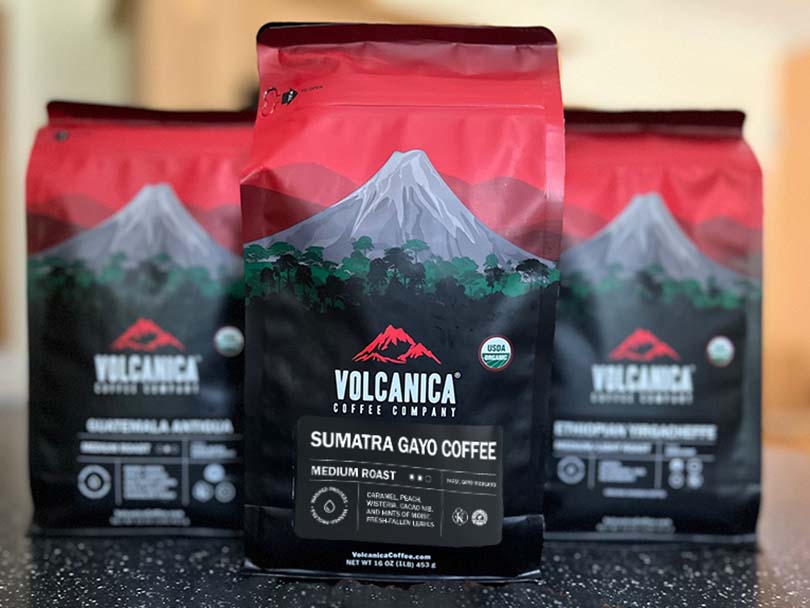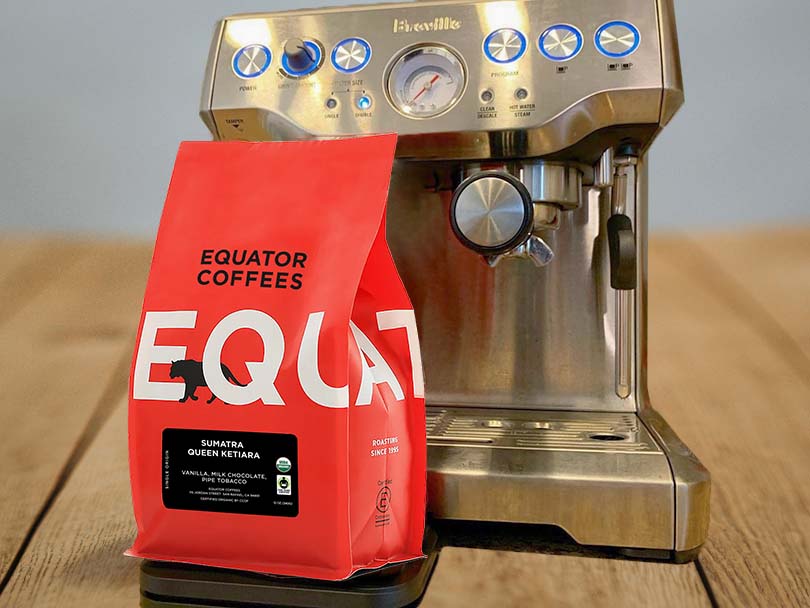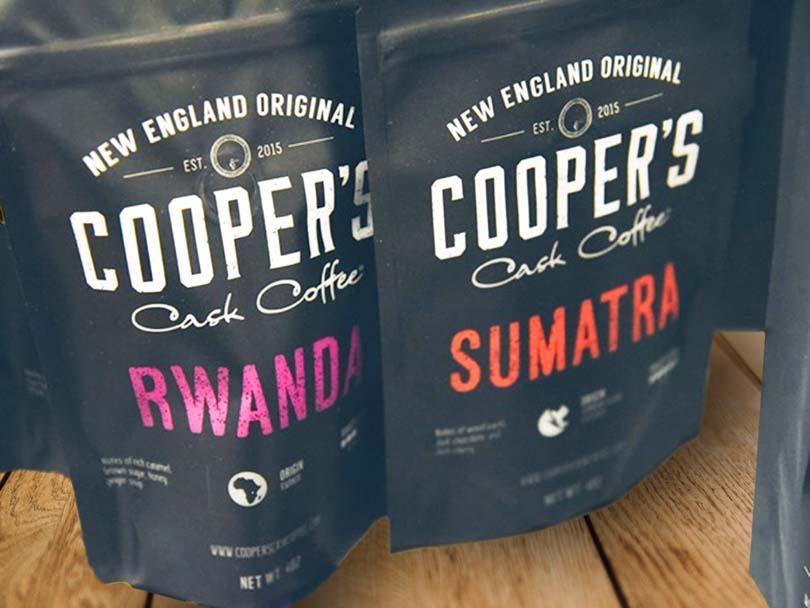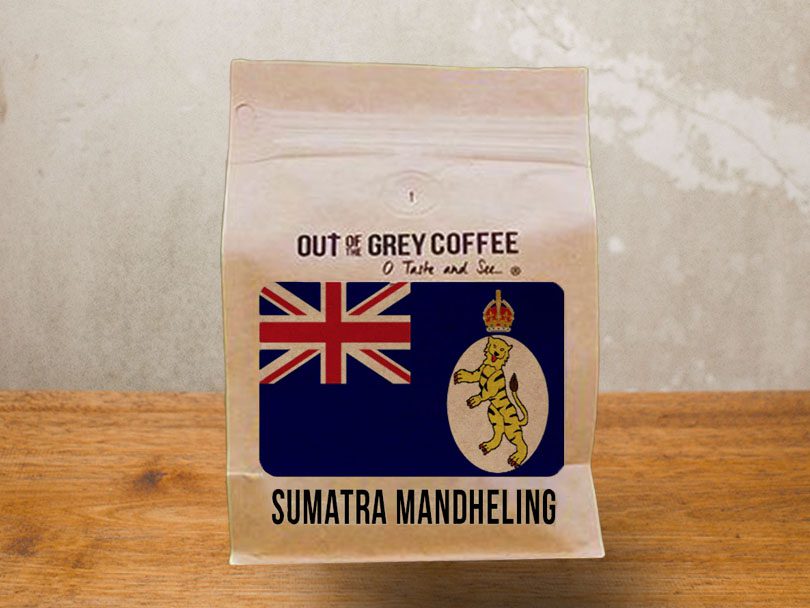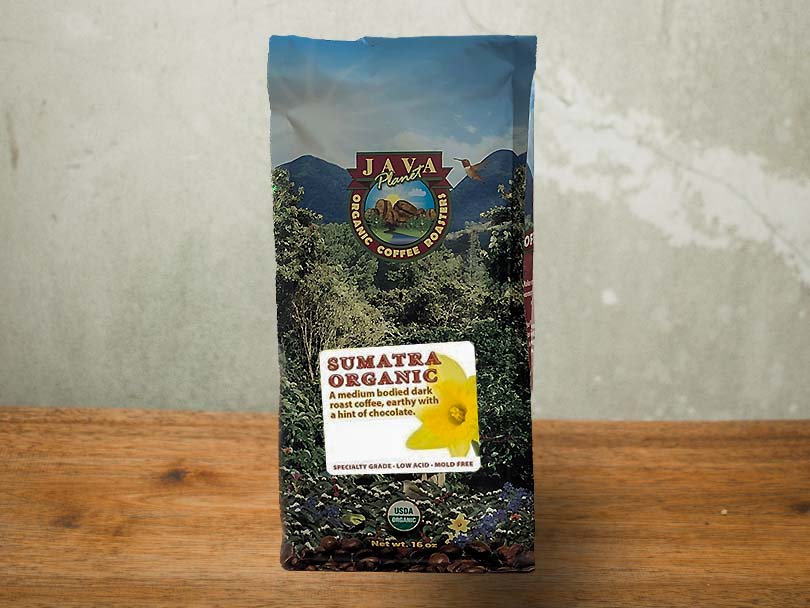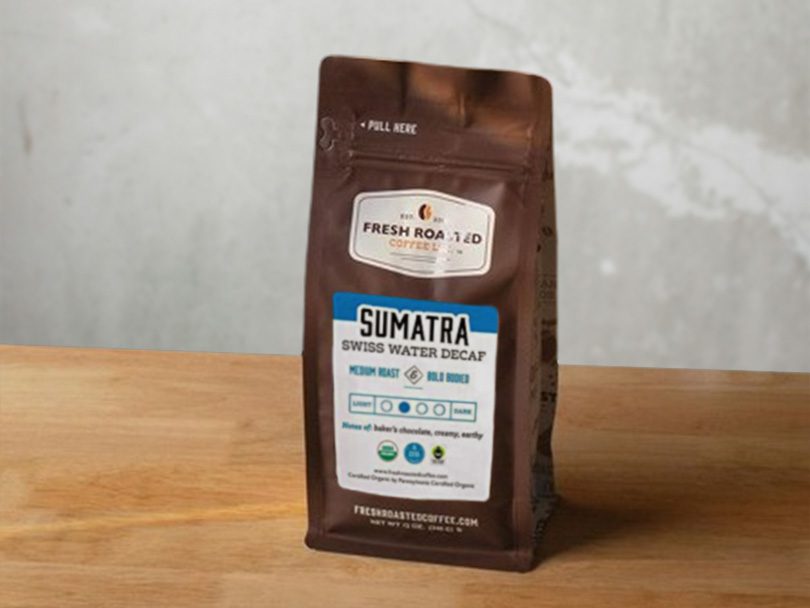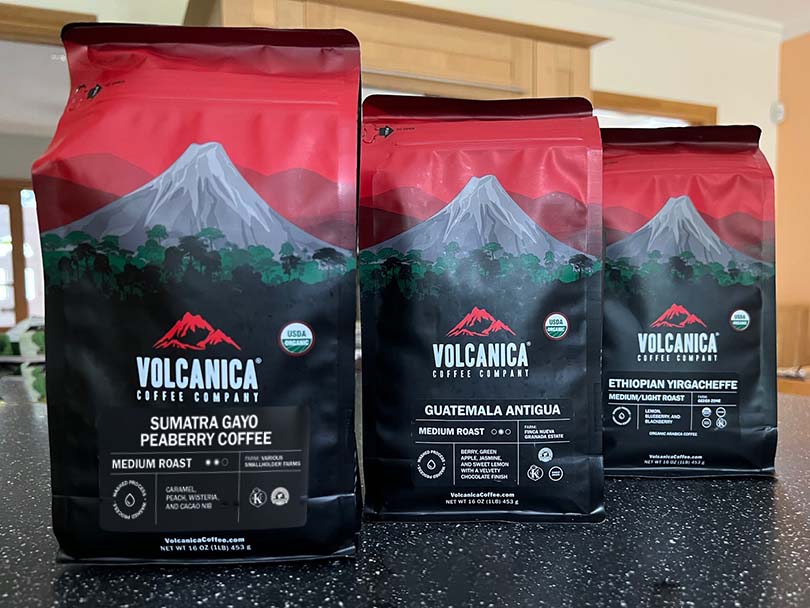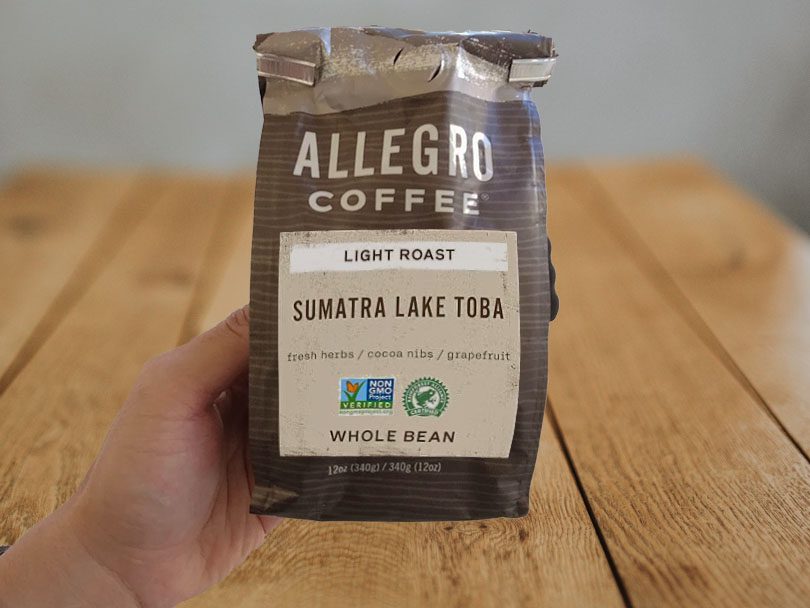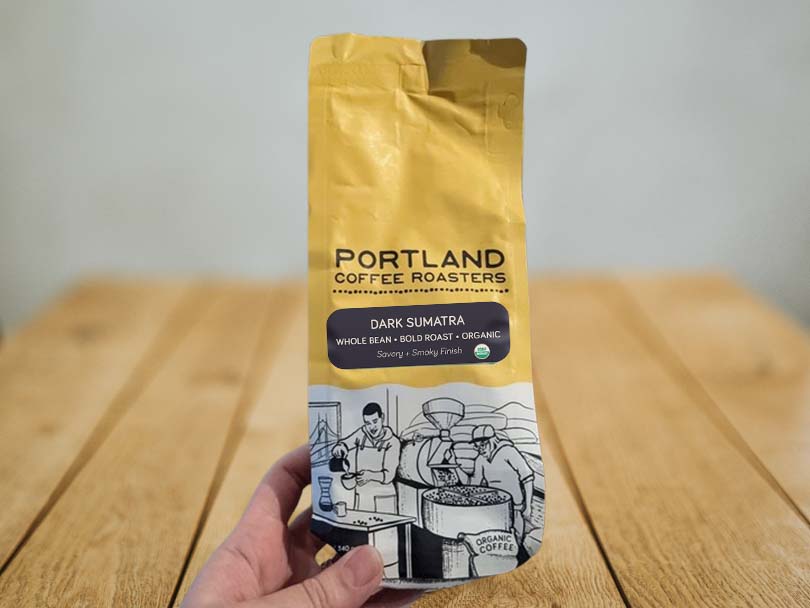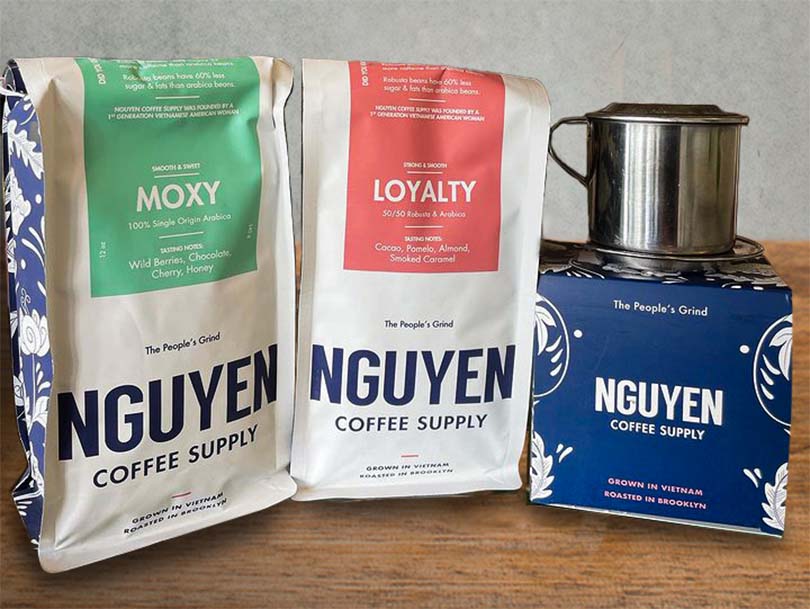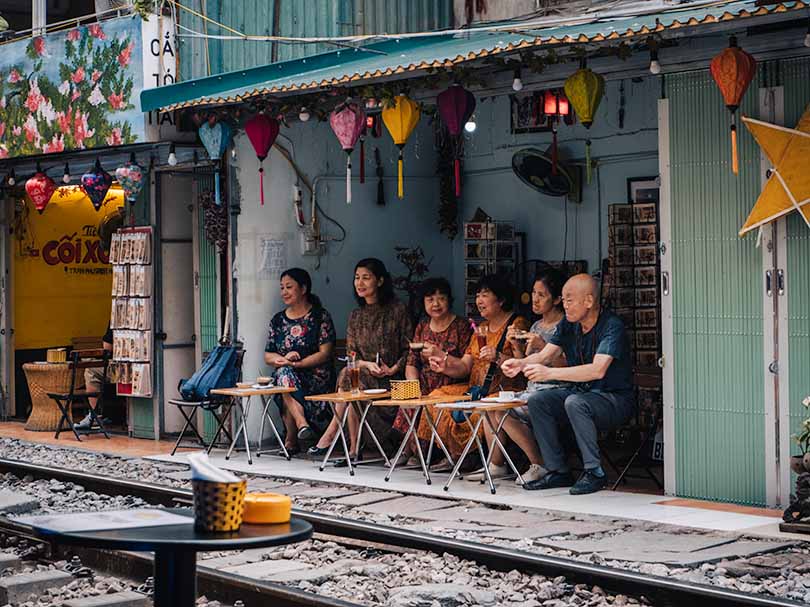Java may be the most famous of Indonesia’s islands for coffee but these days you’re more likely to see Sumatra Coffee as a single origin at your local coffee shop. Sumatra is the largest island that is entirely part of Indonesia and the 6th largest island in the world.
Sumatran coffee has a unique style that can be quite polarizing. This style is due to the unique microclimates and processing methods used on the island that create earthy and spicy notes in the coffee.
We break down all you need to know about coffee from Sumatra and the best ones to buy here.
This article may contain affiliate/ compensated links. As an Amazon Associate, we earn from qualifying purchases at no additional cost to you. For more information please see our disclaimer here.
Sumatra Gayo Volcanica Coffee – Best Overall
What to Expect:
Source: Gayo
Roast: Medium
Processing: Washed
Aroma: Dark berries, chocolate, fresh-fallen leaves
Tasting notes: Caramel. peach, wisteria, and cacao nibs
Important notes: Grown with Orang Utan Coffee Partnership to ensure habitat protection for local wildlife
Prefer Amazon? Shop Here
If you’re looking for a pure taste of Sumatran Arabica then you should absolutely try Volcanica’s single-origin, washed processed coffee from Gayo Mountain.
The combination of sweet stone fruits with rich earthiness and low acidity makes for a very unique coffee-drinking experience. It’s ideal brewed as pour over or French press but also work with espresso.
These beans are also grown in conjunction with the Orang Utan Coffee Partnership. They work with coffee farmers to ensure a sustainable business without clearing the rainforest and precious habitat of these amazing animals.
Sumatra Queen Ketiara, Equator Coffee – Best for Espresso
What to Expect:
Source: Takengon
Roast: Medium-Light
Processing: Wet-hulled
Aroma: Fresh herbs, chocolate, and tangerine
Tasting notes: Milk chocolate, vanilla, tobacco, and clove
Important notes: From a single producer, Equator pay extra for the “Queen” designation to support programs that benefit women in Sumatra
Prefer Amazon? Shop Here
Another phenomenal coffee from near the town of Takengon in the Gayo Highlands. This coffee comes from a cooperative with a majority female membership and is sourced solely from the women-run farms within the cooperative. With women making up over 80% of the coffee-growing workforce in Sumatra it is important to support those who are empowering women to run their own sustainable businesses.
This coffee is wet-hulled “giling basah” processed, which creates those earthy notes that are so well associated with Sumatran coffee but these beans also offer notes of sweet stone fruits and that gentle acidity Sumatra is famous for.
Medium to light roast makes this an ideal pour over or French press bean. We wouldn’t recommend using for espresso but you do you.
Sumatra Dark Roast, Cooper’s Cask Coffee
What to Expect:
Source: Sumatran Blend
Roast: Dark
Processing: Washed processed
Aroma: Smokey dark chocolate and cedar
Tasting notes: Earthy, sweet berries, and smokey chocolate
Important notes: Organic and FairTrade, small batch roasted for freshness, only highest quality beans selected from coops in Sumatra
Prefer Amazon? Shop Here
If you’re a dark roast type of human and you’re looking to see what Sumatra has to offer then Cooper’s Cask’s Sumatran offering is the one for you. Organic and Fairtrade, small batch roasted to rich, dark perfection making them ideal for the espresso machine or just those who like things a little darker.
You’ll still find some of those sweet stone fruit notes that other Sumatran coffees boast but these are bolstered by rich, woody aromas and a touch of tobacco on the finish.
These beans are sourced from Lintong in North Sumatra near Lake Toba. The site of an extinct volcano, the rich soil in this area can give very interesting flavors to the coffee beans.
Sumatra Mandheling Coffee, Out of the Grey
What to Expect:
Source: Mount Leuser
Roast: Dark-Medium
Processing: Wet-hulled
Aroma: Cherry, dark chocolate, and spice
Tasting notes: Rich earthy notes, dreid berries, chocolate, and cedar
Important notes: Cherries are “triple picked” or hand selected 3 times to ensure quality. Also available as a swiss water process decaf.
Grown on the slopes of Mount Leuser, near Padang in Western Sumatra, where the best food in Indonesia comes from. The beans here are double or triple-picked to ensure quality (this refers to the number of times they are hand-selected). This coffee is wet-hulled and the very full body and spicy/earthy taste profile is bold and slightly in your face.
An unapologetic Sumatran coffee that doesn’t try to tone down the flavors that have made this island so famous for its unique style. Probably not to everyone’s taste, but if you like big, bold coffee with serious intensity, and low acidity, then you’re on to an absolute winner.
French press or espresso will bring out the best from these beans.
Single Origin Sumatra, Java Planet
What to Expect:
Java Planet is a reliable source of high-quality, organic, and FairTrade Certified coffee. They sell on Amazon, but we’ve never had any issues with coffee from them tasting “stale”, I expect their turnover is so high that this isn’t a problem.
Their Sumatran offering is exactly what you’d expect having read about the flavors from the island. It’s bold, it’s full-bodied, and it has chocolate and earthy notes that are characteristic of the island.
A solid espresso option for those who want to sample Sumatran coffee without spending a fortune.
Sumatra Swiss Water Processed Decaf, Fresh Roasted Coffee – Best Decaf
Not wanting (or being able) to consume caffeine does not exclude you from the joys of Sumatra coffee. Fresh Roasted’s Swiss water process decaf brings all the punch of the regular beans without the jitter. The Swiss Water Process is chemical-free and uses flavor-infused water to extract the caffeine without taking away any of the precious flavor-giving compounds from the coffee.
From the Takengon region of Sumatra, these beans are grown at 3,300 feet above sea level. Organic and Fair Trade certified, the rich, smooth, earthy flavors still punch after the caffeine has been removed and the sweet chocolatey finish is a joy.
We really like these beans as an espresso but French press will also taste really nice.
Sumatra Gayo Peaberry, Volcanica – Best Peaberry
What to Expect:
Grown between 4,500-6,000 feet above sea level in Ache, at the northernmost tip of Sumatra, these washed processed Peaberry beans are bright and fruity with delicate hints of cacao. Not the same bludgeon of flavor that is expected from the Wet Hulled process, but with the rare peaberry beans you want to get more nuance and subtlety.
These beans are purchased through Direct Trade with various smallholder farms in the Ache region near Takengon in Sumatra. These smaller farms rarely have the money or time to pay for Organic or Fair Trade accreditations but by dealing directly with the farmers, Volcanica makes sure they’re paid the right price for these exceptional products.
These beans should be used for pour over to fully show off their amazing complexity and unique flavor profile.
Sumatra Lake Toba, Allegro Coffee – Best Light Roast
From farms in Lintong Nihuta near Lake Toba in Northern Sumatra, the light roast gives more of a herbal style to the coffee compared to the darker roasts with more earthy flavors.
Allegro Coffee sources its beans directly from various smallholder farms in the region. They work closely with the Batak people to ensure their businesses are sustainable long term and the local environment is preserved, as well as paying a fair price for their excellent produce.
The subtlety of the fruit notes combined with the savory flavors imparted during the Giling Basah processing gives a herbaceous feel to the cup. Another standout for pour over lovers, you can get some great flavor from AeroPress too. We used the inverted method with really good results.
Organic Dark Sumatra, Portland Coffee Roasters
Portland Coffee Roasters is a carbon-neutral company that predominantly produces excellent blends. But there is a couple of fabulous single-origin coffees in there too. The dark roast Sumatra brings rich chocolate and spice along with the classic earthy notes of Giling Basah processed beans.
They take sustainability seriously and work not only to ensure the farms they source from are doing all the right things but all the way through the company to the office staff. Composting, recycling, and energy-efficient lighting, as well as bicycle deliveries within the Portland area, the carbon neutral certification is impressive but also something they are working to improve on.
Using this dark roast for espresso in a flat white brings a really interesting balance of flavor. I’m not usually a milky coffee drinker but I enjoyed the flat white and cortado my wife made with these beans.
Sumatra coffee history starts in the 1600s when coffee was brought to Indonesia by the Dutch. It was initially brought to Java, obviously, but spread across the islands that were ideally suited to coffee growing. Though it didn’t reach the highlands of Sumatra until 1888.
Coffee leaf rust decimated the Arabica coffee plantations of Indonesia and they were replanted with Robusta, which is much more disease resistant than the Typica Arabica variety that had initially been brought to the islands. To this day most of the coffee grown in Indonesia is Robusta.
The high-altitude plantations on Sumatra were much less affected, many did not suffer from coffee leaf rust at all. As a result, more Arabica varieties were planted there – some with mild disease resistance. Now, most of the Arabica coffee grown in Indonesia is Sumatran. Green coffee production remains strong to this day, with over 61,000 tons being exported in 2019.
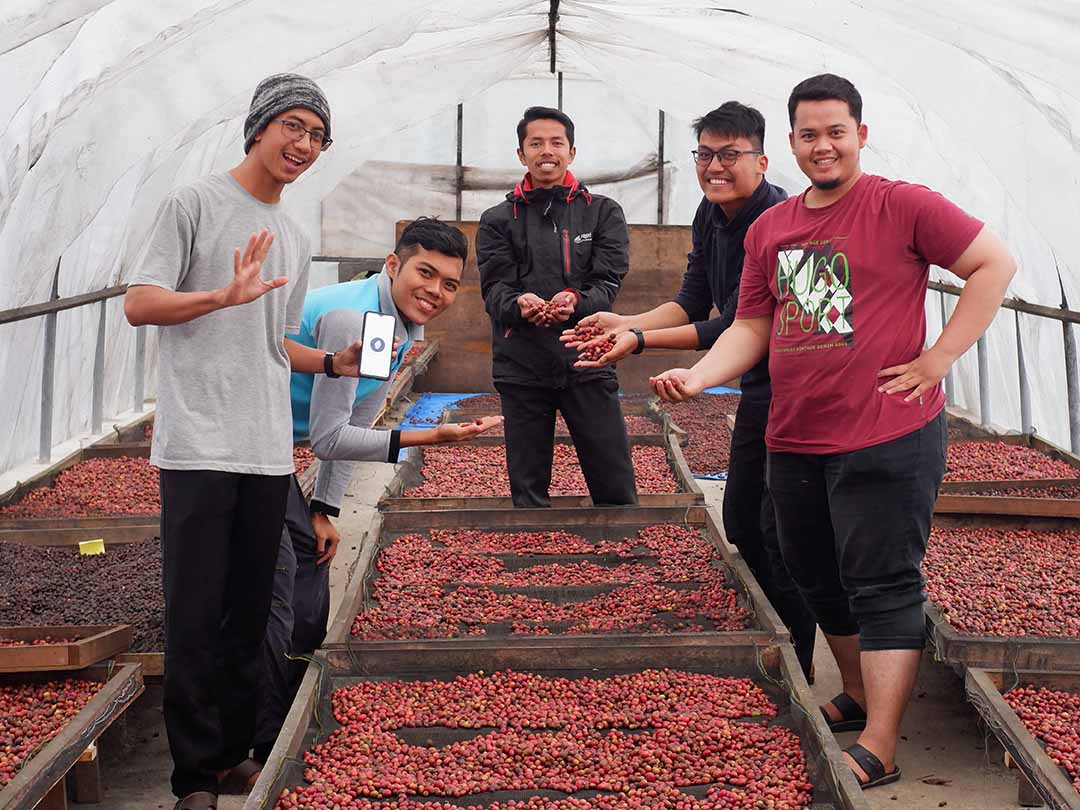
Mandheling is the name of a tribe that lives in Sumatra, it has no special meaning in terms of coffee processing/quality/varietal at all. In the early days of coffee production on the island, coffee bags were often stamped with the name of this tribe and people mistook this for the area.
Another misconception is that it is one of the Sumatra coffee brands, but most coffee from Sumatra is actually from smallholder farmers.
Any big “brands” that may exist are best avoided. The name has stuck, and you’ll still see a lot of coffee labeled as “Mandheling” from Sumatra. But it’s entirely a marketing exercise so don’t pay any attention to whether coffee is labeled as “Mandheling” or not.
If you want to know more about the coffee produced on other Indonesian islands, we’ve got you covered.
Gayo/Aceh
Named after the nearby Gayo Mountain, the coffee grown in this region is from roughly 4000-5500 feet above sea level. This region also produces some “aged coffees” which have been stored for months or years bringing a completely different flavor profile. We wouldn’t describe them as better or worse than other coffee from Sumatra, but they are very different. We wouldn’t pay a hefty price for them though.
Lintong
The other major coffee region in Sumatra is Lintong. From around Lake Toba in the central region of the island, just to the South of Medan. Lintong coffee tends to be of a medium body and slightly more balanced than some of the big styles grown elsewhere in Sumatra.
Ankola
From near the port of Padang on the west of Sumatra, Ankola is unusual in that most of the coffee from this region is dry processed, rather than the traditional Giling Basah (wet-hulled) that we see elsewhere.
This gives the coffee from Ankola a more intensely sweet fruit style, less spice and lighter in body. This is a nice change-up if you want to try something totally different from Sumatran Coffee. It is, unfortunately, also incredibly difficult to get hold of.
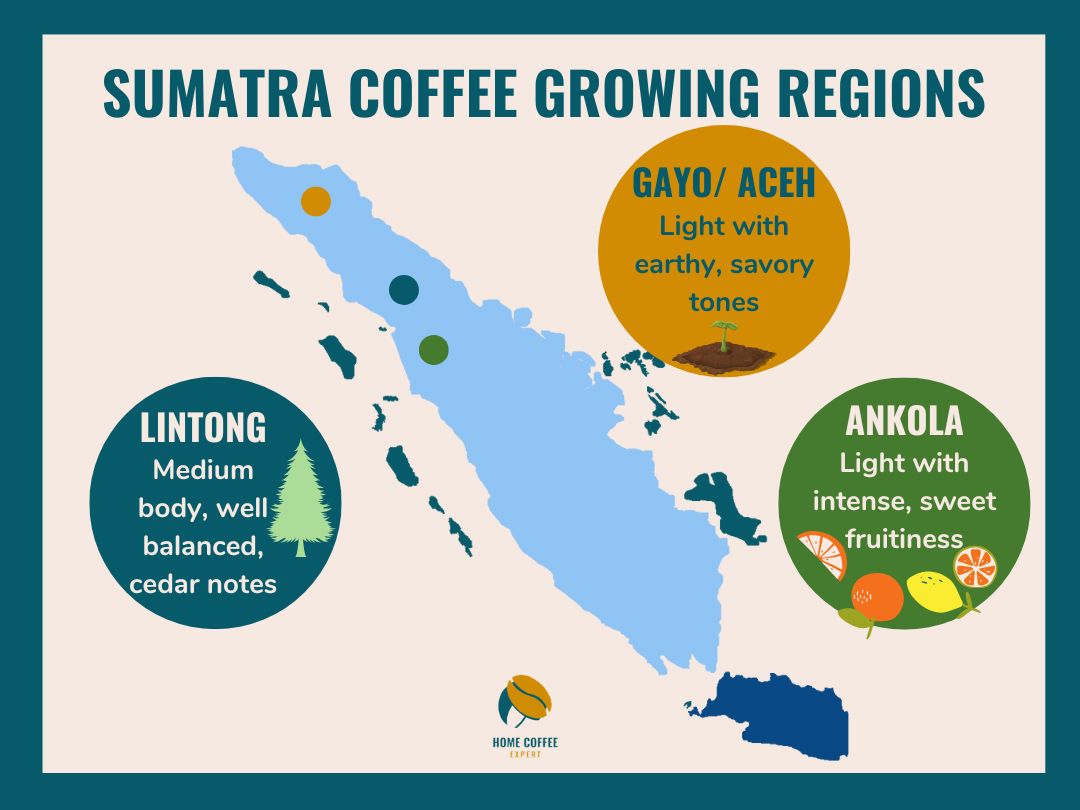
Wet hull processing involves removing the hull and husk of the coffee cherry at a much higher moisture level. This works particularly well in the humid environment of Sumatra and the rest of Indonesia but isn’t seen much outside the islands.
The process gives the beans a blueish tint and gives the rich, earthy notes associated with Sumatra Coffee.
If you want to know more about how coffee beans are processed, we’ve explained all the methods and how they affect the flavor of your coffee
Sumatra coffee beans are known for their bold flavors and full body. The unique wet hulling process and diverse landscape make for exciting flavor profiles and a diverse collection of beans to try.
The difficulty can be in finding the different styles produced as most of the coffee is wet hull processed and sold as “Sumatran Coffee” rather than by the smaller regions that the beans come from. Maybe not for everyone, but definitely worth trying as there is nothing else like it in the world.
You Might Also Like
-
Vietnamese Coffee Brands You Can Buy in the US [Tried & Tested]
Discover the best Vietnamese coffee brands currently available in the US for a caffeinated sip that transports you to the streets of Hanoi
-
How to Order Coffee in Vietnam: Sip Like a Local
Don’t be put off by Vietnamese coffee menus. Use this guide on how to order coffee in Vietnam – you’ll feel like a local in no time
